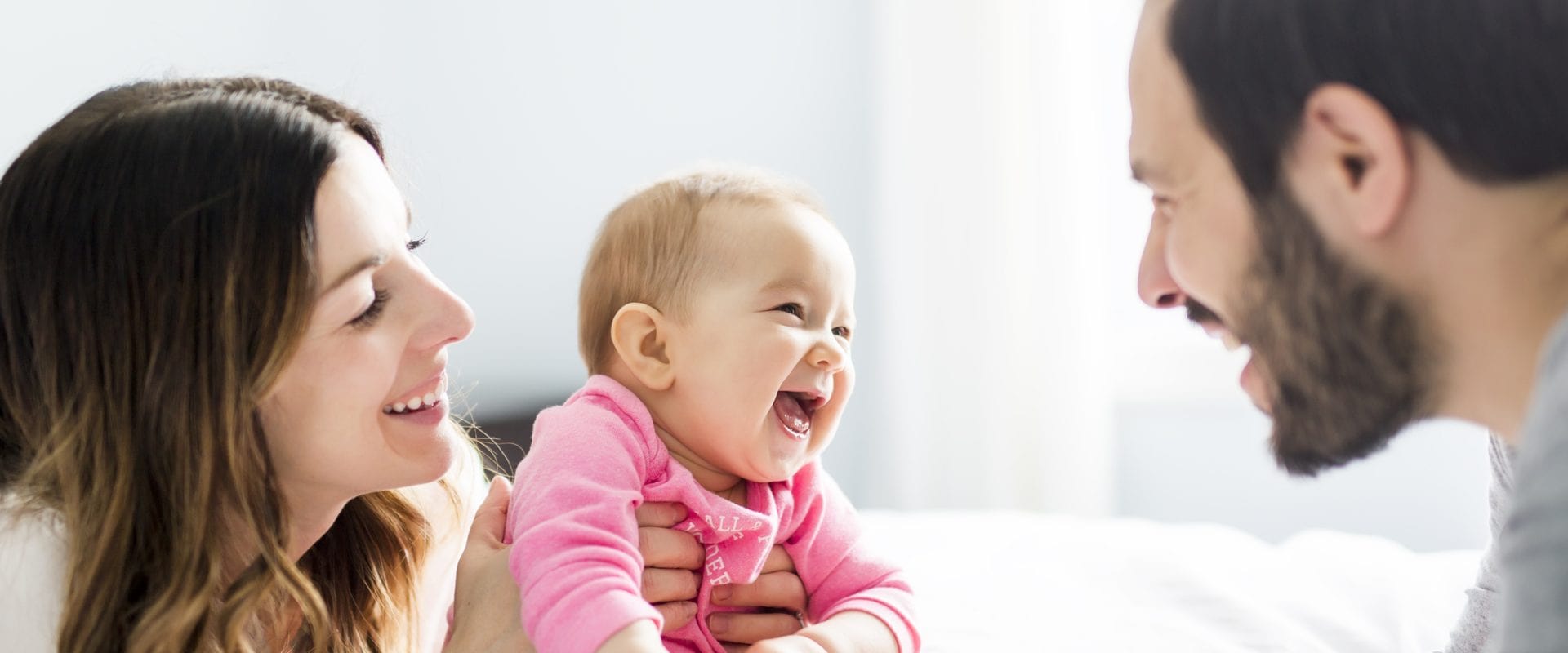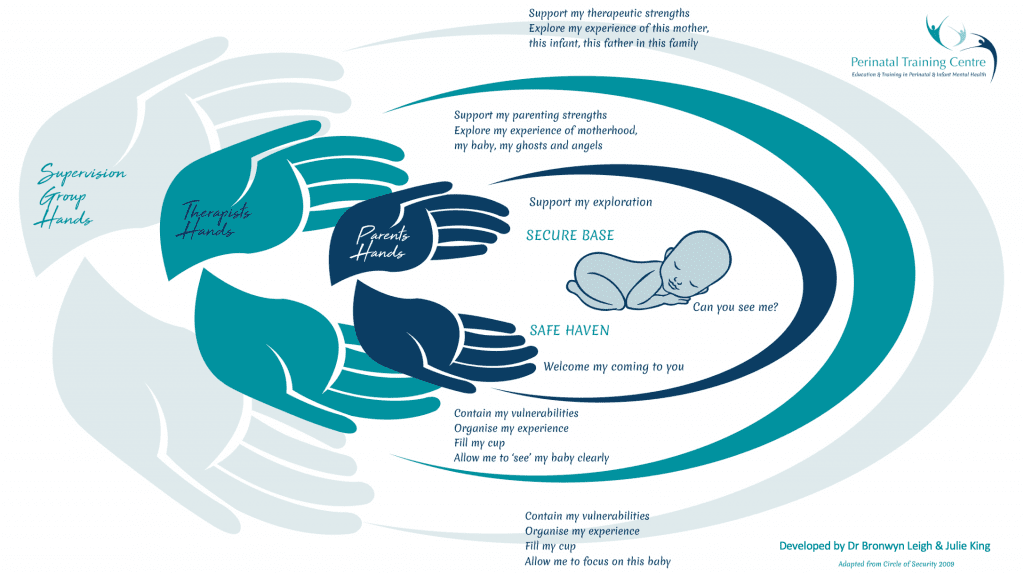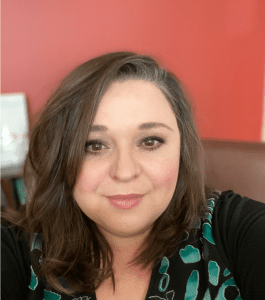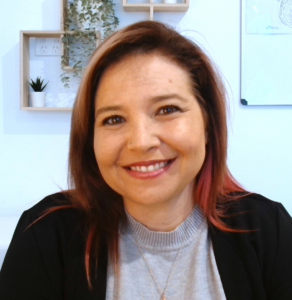

Reflective Supervision Groups provide a small group experience for those who have completed training with us and wish to continue their exploration of PIMH ideas. Clinical issues and cases are discussed while holding the developmental and relational frames of PIMH to support our thinking. The three-participant and one facilitator structure of the groups allows a reflective space to richly formulate and deepen therapeutic work with parents and infants.
These groups complement our trainings and are the perfect continuation of small group learning, combining theoretical rigour, rich formulation skills and practical ports of entry to therapeutic practice.
Groups are offered on a weekly or fortnightly basis and we ask participants to make a commitment for 10-sessions. This is important for predictability and cohesion within the group. Groups hold 3-4 participants with one faciltator.
The group content concentrates on case presentations, with each group member taking turns to present. We focus on relational aspects of assessment, formulation and treatment planning with a view to holding all members of the family in mind. Even if we are working directly with only one parent, finding a way to reflect on the emotional experience of the infant and other family members is critical to this approach, and the long term emotional health of the family. Links between theory and practice are made.
This excerpt is taken from the Australian Association of Infant Mental Health (AAIMH) website and provides a succinct overview and introduction:
“Reflective Supervision is now well established in the field of Infant-Early Childhood work as a tool for supporting practitioners in their therapeutic work with infants, young children and their families, maintaining practitioner skills, and ensuring a quality service is provided.
The primary focus of Reflective Supervision is “the shared exploration of the emotional content of infant and family work as expressed in relationships between parents and infants, parents and practitioners, and supervisors and practitioners” (Weatherston & Barron, 2009, p.63).
It is different to traditional supervision which is often instructional, directive and prescriptive where the supervisee can feel more of a passive participant. Clinical supervision is case-focused but does not necessarily consider what the practitioner brings to the intervention nor does it necessarily encourage the exploration of emotion as it relates to work with an infant/toddler and family.
In the supportive environment of a reflective supervisor who listens and waits, the clinician can make sense of their own emotional response, explore concepts and discover solutions. By attending to the emotional content of the work and how reactions to the content affect the work, reflective supervision relates to professional and personal development within one’s discipline (Best Practice for Reflective Supervision/Consultation Guidelines, MI-AIMH).
“When it’s going well, supervision is a holding environment, a place to feel secure enough to expose insecurities, mistakes, questions and differences.” (Rebecca Shahmoon Shanock,1992).”
Reflection is one of the eight core competency areas identified by the Michigan Association of Infant Mental Health (MI-AIMH) and also endorsed by AAIMHI WA in their Australian version of the Competency Guidelines.
“Building competency in IMH requires the development of a unique knowledge base and skill set specific to infancy and early parenthood, as well as reflective practice supervision experience that leads to best practice.” – AAIMHI WA Competency Guidelines for Culturally Sensitive, Relationship-Focused Practice Promoting Infant Mental Health®
Illustration representing the Reflective Supervision process – this illustration was contained within an explanatory poster and presented at the AAIMHI Conference 2017

Successful completion of the PIMH Intensive Training.
Stable internet connection with camera and sound is required. The Zoom platform is used for the video conferencing meetings.
Capacity to devote time to meeting preparation.
This group focuses on case presentations. Participants are expected to provide written case material to the group prior to their presentation. A case presentation pro forma is provided. All participants are required to read through notes prior to the meeting. In this way, all minds are oriented to the case at the beginning of the meeting allowing the meeting time to be used to explore themes and ports of entry to intervention.
In the first meeting, we ensure technology is working, allow time for introductions, provide a framework for the cases and boundaries for the group. Cases are then presented from weeks 2-10.
Some group participants choose to engage longer than one block of 10-sessions, developing a continuity of learning and being held by the group process.

Dr Bronwyn Leigh is a Clinical Psychologist, perinatal and infant clinician and early parenting consultant. She is the Founder and Director of the Perinatal Training Centre and the Centre for Perinatal Psychology. Bronwyn developed the Reflective Supervision groups as she knows the value of exploring case studies in depth. Holding parallel process and all members of the family in mind, and offering holding containment for clinicians are integral parts of the group work.

Julie King is a Psychologist and Perinatal and Infant Mental Health Clinician, having completed her Masters in Perinatal & Infant Mental Health in 2011. Julie has worked in various capacities with parents and their infants, including home visiting and as a Senior Psychologist provided training in infant mental health to colleagues in her local Child and Youth Mental Health (CYMHS) team. Julie has always been keen to share the substantial “treasure” of practice wisdom and research in the perinatal and infant mental health field and is an experienced supervisor, trainer and presenter.

Dr Charise Deveney is a Clinical Psychologist and Founder of Let’s Talk Psychology Practice in Sydney. Charise has completed specialist perinatal and infant mental health training with the NSW Institute of Psychiatry and has worked clinically with a strong perinatal and infant mental health focus in her practice. For the past 10-years Charise has been facilitating a private group program that supports women with the transition into motherhood. Psychodynamic, attachment, and relational-based frameworks guide her work with perinatal women and infants. Charise is an experienced supervisor and trainer and enjoys supporting clinicians in their perinatal work.

As a supervisor and trainer, Carla enjoys supporting supervisees through the development of their skills and confidence with working in the perinatal period, holding in mind attachment, developmental and relational frames. Carla has always been passionate about both clinical and supervisory support across a broad range of perinatal related concerns from a whole family approach. For many years Carla has supervised, advised and mentored a range of clinicians from a range of disciplines, as well as mentoring for peer support volunteers. Carla is passionate about all perinatal concerns, however has a special interest in perinatal loss, fertility, pregnancy, birth trauma, young parents, women’s health concerns and sexual difficulties in the perinatal period. Carla supervises clinicians just starting out in the field of PIMH through to experienced clinicians. Carla offers in-person and video conferencing (Zoom) appointments and is also an AHPRA Board Approved Supervisor and ANZICA registered.
Subscribe to our Newsletter to stay connected and keep up with all our activities.